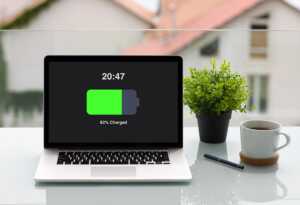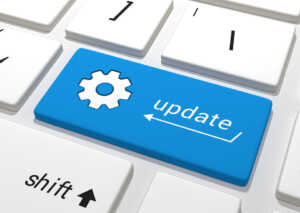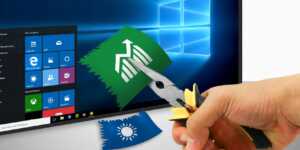There are many ways to boost the performance of your laptop. Some people might say that it’s all about upgrading the hardware, but that’s not necessarily true. In fact, there are a number of software tweaks and tricks that can help you get the most out of your machine.
Optimize Power
It’s no secret that laptops are one of the most important tools in our modern world. They allow us to stay connected to work, school and our social lives. But as essential as they are, laptops can be a real pain when their batteries die.
That’s why it’s important to optimize your battery life to get the most out of your laptop. Here are a few tips to help you do just that:
1. Use power saving mode
When your battery is running low, switch to power saving mode. This will help extend your battery life by reducing the amount of power your laptop uses.
2. Limit screen brightness
One of the biggest battery drains is your screen. So, to conserve power, turn down the brightness of your screen.
3. Avoid using unnecessary programs
Running too many programs simultaneously can also deplete your battery life. So, close any programs you’re not using to help save power.
4. Disable Wi-Fi and Bluetooth
If you’re not using Wi-Fi or Bluetooth, be sure to disable them. Both of these can eat up battery life quickly.
5. Charge your laptop regularly
To keep your battery in tip-top shape, it’s important to charge it regularly – even if you don’t think it needs it.
Update System
The importance of updating your laptop’s system cannot be overstated. Operating systems provide the basic framework for all the software that makes our laptops work. They also offer security features and improve performance.
That said, there are a number of reasons why you should keep your system updated, including:
1. Security patches and updates: Security is always a top concern when it comes to computing. exploits and vulnerabilities are constantly being found in software, so it’s important to have the latest security patches installed to protect your data and privacy.
2. New features and improvements: System updates often include new features and improvements that can make using your laptop more enjoyable and productive.
3. Bug fixes: No software is perfect, and every now and then a bug will be found that needs to be fixed. By keeping your system up-to-date, you can avoid these potential issues.
4. Compatibility: Newer versions of software are often designed to be compatible with the latest operating systems. This means that if you want to use the latest and greatest software, you’ll need to have an up-to-date system.
5. Peace of mind: Perhaps the most important reason to keep your system updated is for peace of mind. Knowing that you have the latest security patches and features can help you relax and enjoy using your laptop, safe in the knowledge that it’s as secure and up-to-date as it can be.
Backup Plan
How often do you backup your laptop’s data? If you’re like most people, the answer is probably “not often enough.” And that’s understandable – after all, backing up data can be a bit of a pain.
But it’s important to remember that your laptop contains a lot of important data. Think about all of the important files and documents that are stored on your laptop. If you were to lose all of that data, it would be a huge pain to try to recover it.
That’s why it’s so important to make sure that you backup your laptop’s data on a regular basis. There are a few different ways that you can do this, but one of the simplest is to use an external hard drive.
Just connect your external hard drive to your laptop and then drag and drop the files that you want to backup. It’s really that easy. And if you ever do need to recover your data, you’ll be glad that you took the time to backup it.
Remove Bloatware
Bloatware can be a serious problem for laptop users. Not only does it take up valuable storage space, but it can also slow down your machine and make it difficult to use.
Fortunately, there are a few things you can do to get rid of bloatware and speed up your laptop. Here are a few tips:
1. Uninstall any unnecessary programs. If you don’t use a program, there’s no reason to keep it on your laptop. To uninstall a program, go to the Control Panel and select “Add or Remove Programs.”
2. Delete any unwanted files. This includes temp files, cookies, and other junk that can clutter up your hard drive.
3. Use a registry cleaner. A registry cleaner will help you get rid of any unwanted registry entries that could be slowing down your machine.
4. Defragment your hard drive. This will help improve the performance of your laptop by organizing your files in a more efficient way.
So there you have it, some easy tips to help speed up your laptop. Stay tuned into Bayshore Interactive’s blog for more helpful information on computer productivity.

